DenAI Summit Recap: A New Model for Government

Recently, the Colorado Technology Association, the City and County of Denver, Visit Denver, Caruso Ventures, Range Ventures, and Slalom hosted the second annual DenAI Summit. This sold-out event, held at the Denver Art Museum, brought together government leaders, digital practitioners, academics, and vendors for two days of talks about how AI changes the way our government can serve citizens.
We’re delighted that DenAI invited us to be part of the conversation.
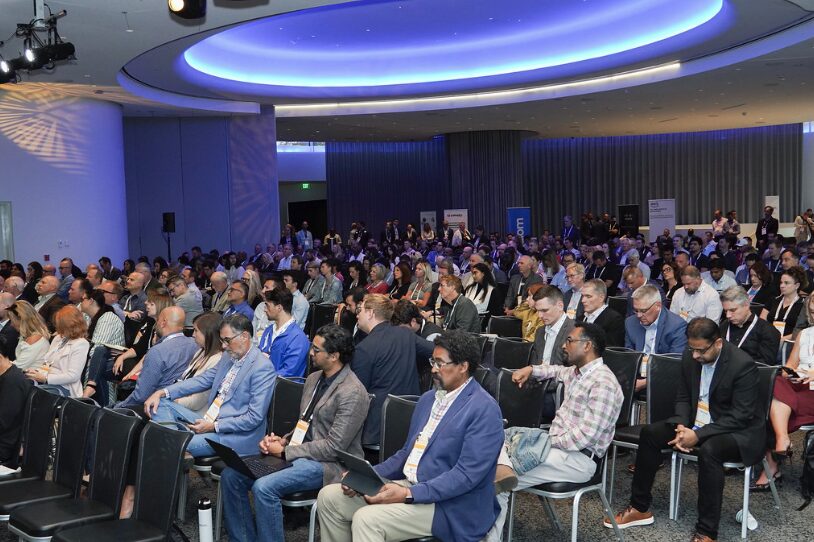
Job Accessible AI Levels the Playing Field
Blind Institute of Technology (BIT) is an early AI adopter – and we’re an accelerator.
- As consulting partners, BIT works with large-scale organizations seeking to implement Salesforce or build AI agents using Agentforce.
- And, as a team of IAAP-certified native assistive technology users, BIT works extensively with government agencies on accessibility maturity, PDF & website remediation, and legal & policy guidance.
For traditional software, accessibility is largely determined at the user interface (UI) level. However, AI is an entirely new way to engage the digital world. For AI-powered software, access is not just about designing an intentional UI and delivering professional code. For AI, access is shaped by training data.
People with disabilities are routinely underrepresented in training datasets. As a result, systems can bake in bias. For accessible AI to become a reality, people with disabilities need a seat at the table.
Current State
At DenAI, we had many informal “hallway sessions” — 1-on-1s with practitioners and government leadership to learn what animates them most about AI.
Practitioners are experimenting with AI individually, but on the whole have yet to see AI adoption scale agency-wide. We also met with government leaders and heard that updating policy, connecting fragmented systems, and securing the necessary budgets need to happen for AI initiatives to scale.
One panelist, Elaine Kamarck, responsible for modernizing government services during the Clinton Administration, advocated moving quickly. She said that government teams need to “overcome a culture of caution” and reminded the audience that back in the 90s, government was slow to embrace the internet, leading to a host of issues that continue to this day. She cited several costly examples caused by the delay, including several that BIT sees in our digital accessibility remediation work. For example, nearly all government agency websites heavily rely on PDFs to communicate online.
Standout Speakers
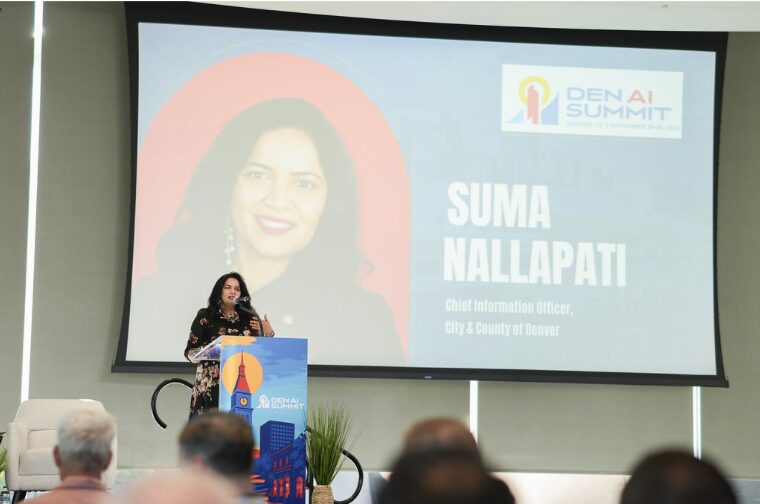
Some highlights from thoughtful presentations and expert panelists:
- Governor of Colorado, Jared Polis & Mayor of Denver, Mike Johnston: Government leadership showed their commitment to growing Colorado as a technology hub. Their message to AI and tech industry leaders, “Colorado is open for business.”
- Tenzin Priyadarshi, President & CEO of the Dalai Lama Center for Ethics and Transformative Values at MIT: AI should be designed to foster empathy, promote civic trust, and reflect human values. Critical decisions must remain under human oversight.
- Daniel Ho, Director of Stanford’s Regulation, Evaluation, and Governance Lab (RegLab): Shared a big win: In order to meet requirements under California’s anti-discrimination laws, Santa Clara County quickly setup an AI-powered app to find outdated, problematic language across millions of real estate records — a task that was previously estimated to take years. Conversely, through a personal anecdote, Ho also illustrated the need for human oversight of AI: he was glad he reviewed an AI-generated bedtime story before reading it to his toddler. Though appropriately prompted, the AI tool wrote a horror story filled with “nightmare fuel.”
Suma Nallapati, City of Denver Chief IA and Information Officer: Denver’s leading technologist was DenAI’s emcee. She kept the attendees informed, presenters on time, and made it look easy. During DenAI, Major Johnston announced her new title and role with the City, another proof point of Denver’s investment into scaling AI across City services. Congratulations, Suma!
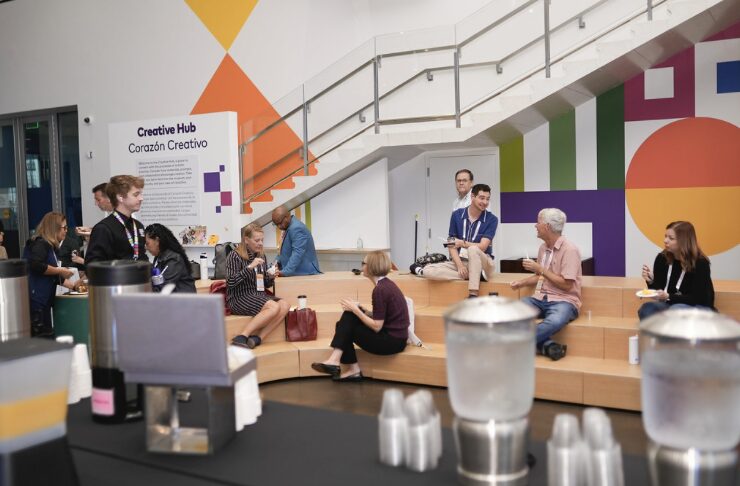
Recurring Themes
There were several recurring themes from panelists, vendor demos, and our informal ”hallway sessions”:
Many organizations mistakenly build new initiatives around specific AI tools. Orgs have far better outcomes when they design solutions to the problems they are trying to solve — and then selecting the right tool for the job. Another common misstep is using AI to augment existing workflows, and overlooking the opportunity to reimagine or eliminate processes entirely.
- Building trust is a priority for government. Civic engagement is at an all-time low. Accountability needs reliable, transparent systems, and human oversight.
- Government agencies need to radically transform how they provide services. Good governance and oversight are foundational. Across industries, approximately 95% internally-led AI initiatives have failed to produce an ROI. Organizations report better outcomes working with outside vendors.
- Good data is critical for accurate results. Fragmented software and legacy systems are a blocker to providing structured, organization-specific training data that improves AI accuracy and nuance.
- Many organizations mistakenly build new initiatives around specific AI tools. Orgs have far better outcomes when they design solutions to the problems they are trying to solve — and then selecting the right tool for the job. Another common misstep is using AI to augment existing workflows, and overlooking the opportunity to reimagine or eliminate processes entirely.
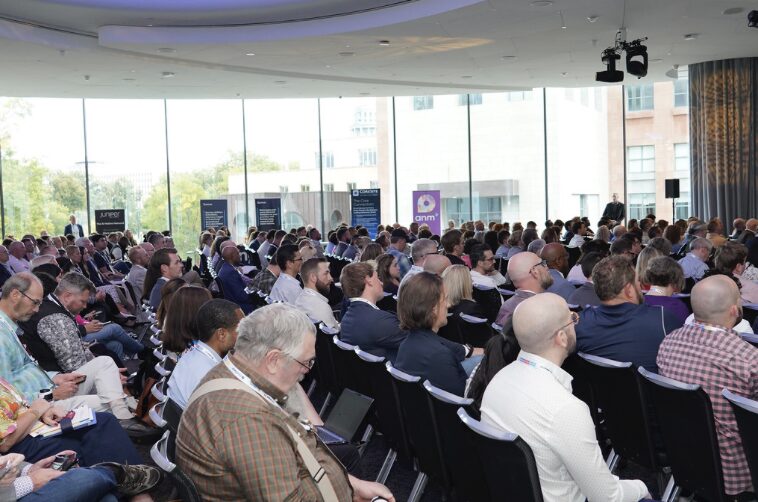
Takeaways
- There’s a ton of excitement around AI. DenAI, only in its second year, was sold out, and had a very long waitlist.
- There are several blockers preventing government from scaling AI initiatives: fragmented systems/poor data, budget constraints, and the need for new policies to address governance, ethics, and security.
- Denver and Colorado are removing those blockers and investing in AI. They see AI as an opportunity to radically grow Colorado’s already-thriving tech community.
Thanks again to the Colorado Technology Association and the City of Denver for putting on a fantastic event! BIT is thrilled to be part of this community. See you next year!
Tell us about your work with digital accessibility, AI, and Agentforce.
About the Writer
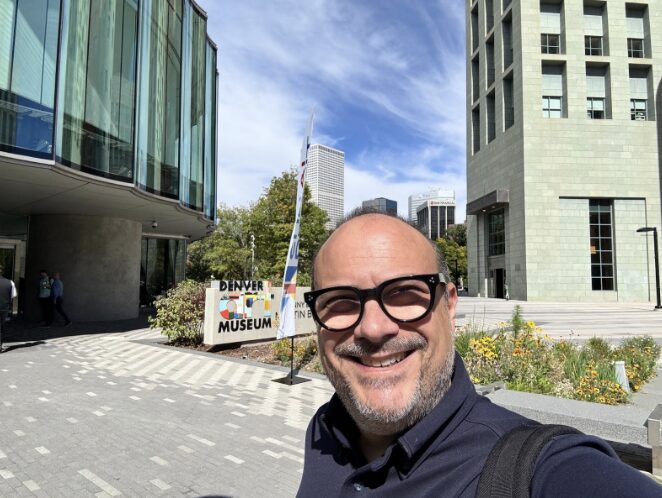
Joe Crespo is a web developer, user experience expert, and technical project manager. Joe has led large-scale digital transformation, content modernization, and document remediation initiatives for government, education, and the Fortune 1000.
Today, Joe is Business Development Director at Blind Institute of Technology (BIT). where he works with government agencies, partners, and technology firms advancing AI, accessibility, and workforce inclusion.